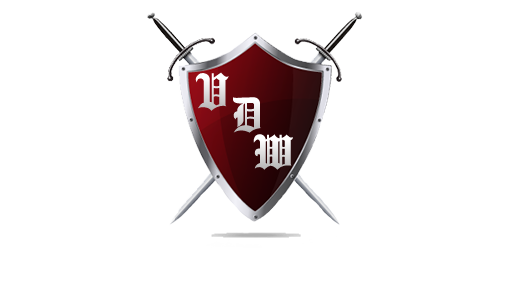BANG FOR YOUR BUCK: GET THE RAISE YOU DESERVE
How to ask for and get the raise you deserve
The holidays are a time of financial giving, but that doesn’t mean all companies will be giving out bonuses, or even raises for that matter.
According to recent surveys by several finance and staffing firms, while monetary holiday bonuses are expected to increase in value this year, bonuses, overall, are becoming more scarce. In a poll of 500 U.S. companies, 63 percent of hiring managers say their company plans to give employees a bonus, the survey notes. That’s down from 75 percent in 2017.
Whether or not you end up among the growing number of workers who won’t get a bonus this year, your holidays can still be happy. Here are five effective steps to take to ask for, and get, a raise:
Do your research and come prepared
First things first: If you want a raise, you’ll have to do your homework. Set realistic expectations about what your salary increase might look like and understand why you deserve it.
To gauge your market value, try using a salary calculator. These tools can offer insight by measuring your pay against your experience and position and comparing it to the wages of your peers across the country. Keep in mind, though, the estimates rely on self-reported numbers and can’t take into account your specific circumstances.
Document your achievements and noteworthy projects
Start by identifying any tasks you’ve taken charge of that were unanticipated when you began the job or any additional responsibilities you’ve taken on.
If you’ve received notable recognition or awards, note that too. This could help your manager better understand the value of your work and your importance to the team.
Find the right time to approach your manager
Be sure you ask for a raise at the right time, not just because you need the money or because “you just heard the guy in the next cubicle is making $5,000 more than you,” bestselling author and CNBC contributor Suzy Welch says.
According to a LinkedIn report, January is one of the top months when employers give out raises. Thus, preparing your pitch in December could be a smart move.
Initiate the dialogue
Once you’ve done your research, you can initiate a conversation with your manager. Instead of bringing up the issue in passing, schedule a formal meeting and come ready to break down exactly why you deserve that raise!
Be sure to focus on why you deserve it, not just why you need it.
Keep in mind, dollars and cents aren’t the only possible form of compensation. Ask about perks and benefits such stock options, a more flexible schedule, including telecommuting.
Finally, show your appreciation
Clearly assert why you deserve a raise but don’t get pushy. If your boss doesn’t feel you deserve a raise yet, don’t get mad. Ask what steps you can take to earn one.
If there just isn’t room in the budget to pay you more at the moment, make clear that you understand and, again, could be willing to talk about other kinds of perks and compensation. This could make the conversation more collaborative and open the door for a follow-up soon.
Takeaway
Even if you don’t walk away with everything you want, odds are you’ll feel good about being assertive. Remember, lots of job seekers and employees are too anxious to try to negotiate, but those who ask for more are usually more successful.
Happy Holidays from the Van De Water Law Firm

EMPLOYMENT LAW ALERT: EMPLOYER COMPLIANCE WITH NEW SEXUAL HARASSMENT LAWS COMMENCES ON OCTOBER 9, 2018
A BRIEF BY COMPREHENSIVE OVERVIEW OF WHAT YOU NEED TO KNOW TO COMPLY WITH THE NEWLY ENACTED NEW YORK STATE AND NEW YORK CITY SEXUAL HARASSMENT TRAINING LAWS
BY: CHRISTOPHER L. VAN DE WATER, ESQ. MANAGING PARTNER
THE VAN DE WATER LAW FIRM, P.C.
CHRISV ANDEW A TER.COM
In 2018, both New York State and New York City have enacted the strictest harassment training laws in the Nation as a clear outgrowth of the #MeToo movement that swept the country following the Harvey Weinstein scandal. All Employers must begin compliance with the New York State Law commencing on October 1, 2019, and the New York City Law on April 1, 2019.
I. 2018 New York State Budget Sexual Harassment Training Provisions Contained within Part KK of S7507-C
On April 12, 2018 New York Governor Andrew Cuomo signed into law several bills that were included in the 2018-2019 New York State budget. The bills address workplace sexual harassment. Part KK of S7507-C 0g the new law requires New York employers to adopt and distribute a sexual harassment policy and training program. The new requirements take effect October 9, 2018.
A. Content Requirements of the New York State Sexual Harassment Policy:
More specifically, the new law requires employers adopt a sexual harassment prevention policy which:
- 1) prohibits sexual harassment and provides examples of prohibited conduct;
- 2) includes information concerning federal and state sexual harassment lawsand mentions there may be applicable local laws;
- 3) includes a standard complaint form;
- 4) includes a procedure for the timely and confidential investigation ofcomplaints including due process for all parties;
- 5) informs employees of their rights of redress and available forums foradjudicating claims administratively and judicially;
- 6) clearly states sexual harassment is a form of employee misconduct and that sanctions will be enforced against individuals engaging in sexual harassment and against supervisory management who knowingly allow such behavior to continue; and
- 7) clearly states retaliation against individuals who complain of sexual harassment or who testify or assist in any proceedings is unlawful.
This sexual harassment policy must then be provided to all of your employees in writing. It would be advisable to include this policy in your orientation package. You should should informally and formally routinely remind employees of this policy.
You can read the New York State’s sexual harassment laws in their entirety (Part KK of S7507-C) by clicking here:
https://nyassembly.gov/leg/?default_fld=&leg_video=&bn=S07507&term=2017 &Summary=Y&Memo=Y&Text=Y
The Model Sexual Harassment Policy can be found by clicking here:
https://www.ny.gov/sites/ny.gov/files/atoms/files/StatewideSexualHarassmentPrevention Policy.pdf
The Model Sexual Harassment Complaint Form can be found by clicking here:
https://www.ny.gov/sites/ny.gov/files/atoms/files/ComplaintformSexualHarassment.pdf
B. Training Requirements of the New York State Sexual Harassment Policy:
The New York State Law also mandates that employers provide interactive training to their employees that includes the following:
- 1) an explanation of sexual harassment;
- 2) examples of sexual harassment;
- 3) information concerning the federal and state laws concerning sexualharassment and remedies available to victims; and
- 4) information concerning employees’ rights of redress and forums forcomplaints.
Although there is no record keeping requirement under the law, I strongly advise your company to formally track, in a signed form, your employees’ attendance at the training. This type of evidence is helpful in defending against potential allegations of sexual harassment, and will serve to mitigate your risk against frivilous lawsuits.
C. Model Sexual Harassment Policy and Training Program
The law also requires the New York State Department of Labor (DOL) and the New York State Division of Human Rights (DHR) to develop a model policy and training program for employers.
II. The Stop Sexual Harassment in New York City Act
The Stop Sexual Harassment in New York City Act was signed into law by Mayor Bill de Blasio on May 9, 2018 and expands the reach of the New York City Human Rights Law in cases involving gender-based harassment.
A. The Stop Sexual Harassment in NYC Law Amends New York City Human Rights Law by:
- 1) applying provisions related to gender-based discrimination to ALL employers, regardless of the number of employeess;
- 2) increasing the statute of limitations from one-year to three-years for filing a claim of gender-based discrimination with the NYC Commission on Human Rights;
- 3) mandating employers with 15 or more employees to conduct annual anti- sexual harassment training to all employees, including managers and supervisors.
- 4) for new employees who work more than 80 hours in a year, such training much be provided within 90 days of their initial hire. This requirement is effective April 1, 2019.B. Training Requirements of the New York City Act:
The New York City Stop Sexual Harassment Act requires that every employer’s sexual harassment training must:
- 1) provide an explanation and example of sexual harassment as a form of unlawful discrimination under NYC law;
- 2) state sexual harassment is unlawful under both Federal and New York State laws;
- 3) provide a detailed description of what sexual harassment is;
- 4) identify the employer’s internal complaint process;
- 5) state the complaint process that is available through the NYC Commissionon Human Rights, the NYS Division of Human Rights and the EEOC,including all relevant contact information;
- 6) explain the prohibition against retaliation against an employee by anemployer;
- 7) provide information concerning bystander intervention (i.e., such as suggestions about how to confront a harasser); and
- 8) identify the specific responsibilities that supervisors and managerial employees have in the prevention of sexual harassment and retaliation.
- 9) keep employee’s training acknowledgment forms for three years.
The New York City training requirements begin on April 1, 2019. The training must be provided annually and, in the case of a new employee hire, within 90 days thereof.
Starting September 6, 2018, all New York City employers are required to post a sexual harassment poster and distribute a sexual harassment fact sheet to all new employees.
Additionally, under the New York City Law, employers are required to keep training acknowledgment forms for 3 years.
You can find the NYC Stop Sexual Harassment in NYC Act here:
https://www1.nyc.gov/assets/cchr/downloads/pdf/amendments/Local_Law_95.pdf
You can find the required Stop Sexual Harassment Notice here in English:
https://www1.nyc.gov/assets/cchr/downloads/pdf/materials/SexHarass_Notice- 8.5×11.pdf
You can find the required Stop Sexual Harassment Notice here in Spanish:
The Stop Sexual Harassment Fact Sheet can be found here in English:
https://www1.nyc.gov/assets/cchr/downloads/pdf/materials/SexHarass_Factsheet.pdf
The Stop Sexual Harassment Fact Sheet in Spanish can be found here:
https://www1.nyc.gov/assets/cchr/downloads/pdf/materials/SexHarass_Factsheet- Sp.pdf
DIFFERENCES BETWEEN THE NYC AND NEW YORK STATE NEW SEXUAL HARASSMENT LAWS
The two tables below detail the obligations and the differences between the New York State and New York City laws regarding:
- Training Requirements (Table 1)
- Training Content (Table 2)
Table 1
Sexual Harassment Training Obligations in New York State
|
New York State |
New York City |
|
|
Effective Date and Deadline |
Effective October 9, 2018. Deadline of January 1, 2019, to have all employees trained. |
Effective April 1, 2019. Deadline of April 1, 2020, to have all employees trained. |
|
Employers and Employees Covered |
All employers, regardless of size, must train all employees. |
Employers with 15 or more employees must train all employees, who work 90 or more hours per calendar year, on a full or part-time basis in New York City. |
|
Contractors Covered
|
Beginning on January 1, 2019, all contractors who bid on NY State contracts must certify under penalty of perjury that they have provided annual sexual harassment training to all employees, even those outside of the state. |
While the law doesn’t explicitly require NYC contractors to provide sexual harassment training, they will be required to describe their practices, policies, and procedures “relating to preventing and addressing sexual harassment” as part of existing reporting requirements. |
|
How Often |
Must provide training annually. Employers can track completion based on the calendar year, the anniversary of each employee’s start date, or any other date the employer chooses. |
Must provide training annually. |
|
New Employees |
The NY State draft guidance says that new employees must be trained within 30 days of their start date. |
New employees who work 80 or more hours per year, on a full or part-time basis, in NYC must be trained after 90 days of hire, unless the employee received training within the same annual cycle from a prior employer. |
|
Recordkeeping |
None specifically required. |
Employers shall keep a record of all training, including a signed employee acknowledgment, which may be electronic. Employers shall maintain such records for at least three years and such records must be made available for commission inspection upon request. |
|
Interactivity |
The training must be “interactive.” NY State’s draft guidance says that “interactive” means that the training must require some form of employee participation. According to the State’s model training document, the training should include as many of the following elements as possible:
|
The training must be “interactive,” which is defined as “participatory.” Online training may suffice if it is interactive. |
Table 2
Harassment Training Content Requirements in New York State and NYC
|
New York State |
New York City |
|
|
Sexual Harassment Definition and Examples |
An explanation of sexual harassment consistent with guidance issued by the NY DOL. It also must include examples of conduct that would constitute unlawful sexual harassment. |
A description of what sexual harassment is, using examples. |
|
Applicable Laws |
Information containing the federal and state statutory provisions concerning sexual harassment and remedies available to victims of sexual harassment. |
An explanation of sexual harassment as a form of unlawful discrimination under local law. A statement that sexual harassment is also a form of unlawful discrimination under state and federal law. |
|
Reporting, External Forums of Adjudication, and Rights of Redress |
Information concerning employees’ rights of redress and all available forums for adjudicating complaints. |
The training must inform employees of the internal complaint process available to employees through their employer to address sexual harassment claims. It also must describe the complaint process available through the NYC Commission on Human Rights, the New York State Division of Human Rights, and the United States Equal Employment Opportunity Commission, including contact information. |
|
Retaliation |
Training on retaliation is not specifically required by the state law, but the law also notes that anti-retaliation provisions must be included in the employer’s policy. |
The prohibition of retaliation, pursuant to subdivision 7 of section 8-107, and examples of protected activity under the law (such as opposing discrimination, filing a complaint, testifying on behalf of someone complaining about discrimination, and assisting in an investigation). |
|
Bystander Intervention |
No requirement to address bystander intervention. |
Information concerning bystander intervention, including but not limited to any resources that explain how to engage in bystander intervention. |
|
Supervisors’ Duties
|
Address conduct by supervisors and any |
The specific responsibilities of supervisory and managerial employees |
|
additional responsibilities for such supervisors. |
in the prevention of sexual harassment and retaliation, and measures that such employees may take to appropriately address sexual harassment complaints. |
|
|
CONCLUSION It is important to keep in mind that this article sets forth the bare MINIMUM compliance measures required by your company or business under the new laws. THE VAN DE WATER LAW FIRM, P.C. can help you not only get into compliance with both laws, but more importantly, exceed the State and City mandates with comprehensive training and internal protocols that will protect your business for years to come. We at The Van De Water Law Firm, P.C. are happy to answer any questions you may have about your compliance obligations under the law, as well as all other employment and litigation matters affecting your business. |
||
THE VAN DE WATER LAW FIRM, P.C.
631-923-1314
ALL CONTENT COPYRIGHTED © BY THE VAN DE WATER LAW FIRM, P.C. 2018


Recent Comments